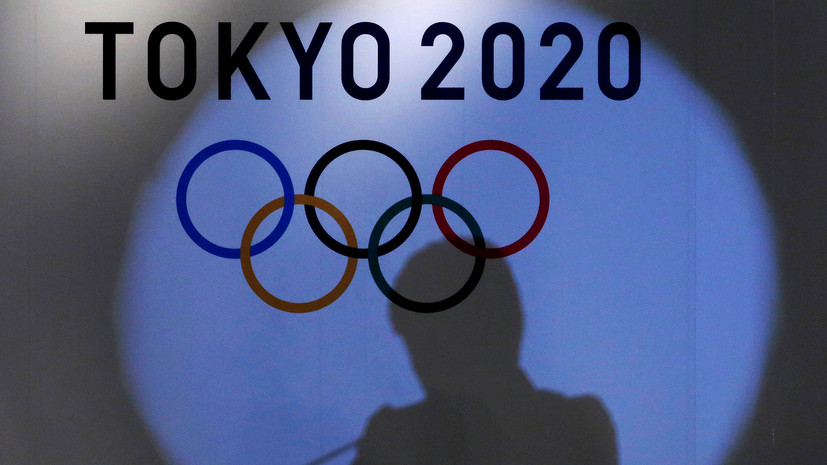The House of Representatives of the US Congress approved amendments to the Amateur Sports Act.
The changes made to the act regulating the activities of the United States Olympic and Paralympic Committee (USOPC), according to experts, can be interpreted by the International Olympic Committee (IOC) as state interference in the activities of the organization, which in the past has already led to a ban on the participation of other countries in the Olympic Games ...
The Bill on the Empowerment of Olympic, Paralympic and Amateur Athletes was introduced by Senators Jerry Moran and Richard Blumenthal.
The lower house of Congress passed the amendments unanimously.
Now they must be sent for signature to US President Donald Trump by October 13, and if approved by the head of the White House, some of them will come into force in a year.
A key clause of the document is the empowerment of Congress to remove from their positions members of the USOPC Board of Directors, which is the governing body of the organization.
The reason for the adoption of the law, which allows direct interference in the work of the Olympic and Paralympic Committee and the federations subordinate to it, was the scandal with the former physician of the US national gymnastics team Larry Nassar.
The preamble to the amendments states that he has committed sexual acts against over 300 athletes over the course of two decades, with ineffective supervision by the USOPC and the Gymnastics Federation.
The adoption of the new law regulating the activities of sports organizations, it is argued, should help to eradicate "emotional, physical and sexual violence in the Olympic and Paralympic movements."
“Institutions tasked with protecting athletes have fallen short of their responsibilities countless times, preferring to ignore or cover up abuse rather than protect athletes and survivors.
The House of Representatives today passed a bill to reform the US Olympic system, introducing radical changes and effective measures to protect our Olympic, Paralympic and amateur athletes, ”Senators Moran and Blumenthal said in a joint statement.
The bill is supposed to push the USOPC and the sports federation to allow more athletes themselves to rule.
This, in turn, should increase transparency in the work of organizations and increase the level of trust in them.
But if the goal of the reforms is not achieved, Congress will have the right to independently decide what will be the composition of the USOPC supervisory board.
In the past, the amendments have been criticized by the US Olympic and Paralympic Committee.
Executive Director Sarah Hirschland argued that the IOC could strip an organization of its recognition if government authorities were given permission to interfere in its internal affairs.
“The USOPC should be the only body with the power to revoke the accreditation of sports federations in order to rule out any misunderstandings related to their accountability.
In addition, the IOC has made it clear that the acceptance by Congress of the authority to dissolve the USOPC board would violate the Olympic Charter and jeopardize the IOC's recognition of the OC as a national Olympic committee, ”said Hirschland.
However, she then changed her mind and thanked the initiators of the amendments for their work, calling their adoption "a great victory for US athletes."
According to Inside The Games, the IOC is aware of the upcoming transformations at USOPC.
The International Olympic Committee is going to study and discuss the ongoing reform with the organization itself to assess the validity of this law.
Formally, the IOC will have the opportunity to remove one of the strongest national teams a few months before the 2022 Winter Olympics in Beijing.
However, the publication believes that the likelihood of such a development of events is small.
Sports lawyer Artyom Patsev agrees that there is a reason for sanctions.
“Before making any conclusions, one must carefully read the text of the bill and the form in which it will be adopted.
At the same time, if there are indeed provisions in the law that would give the state and its officials too many administrative rights in relation to sports organizations, which in theory should be independent, then the question may arise about the compliance of NOCs, national federations and the national anti-doping organization with the provisions of the World Anti-Doping Code and International Standard for Compliance.
Such inconsistency, if not corrected in time, may lead to the application of various sanctions to the signatories of the Code.
Of course, from the point of view of the rules, no one has an indulgence for violations, including the United States, ”said Patsev RT.
The IOC has already applied sanctions in the recent past to countries whose governments interfered in the internal affairs of their national Olympic committees. Athletes from Kuwait and India were banned for some time from representing their country and flying their own flag. Also, the head of the IOC, Thomas Bach, has claims against the Italian National Olympic Committee, which may lose its authority in the distribution of finances if a bill that is pending in the country's parliament is passed.

